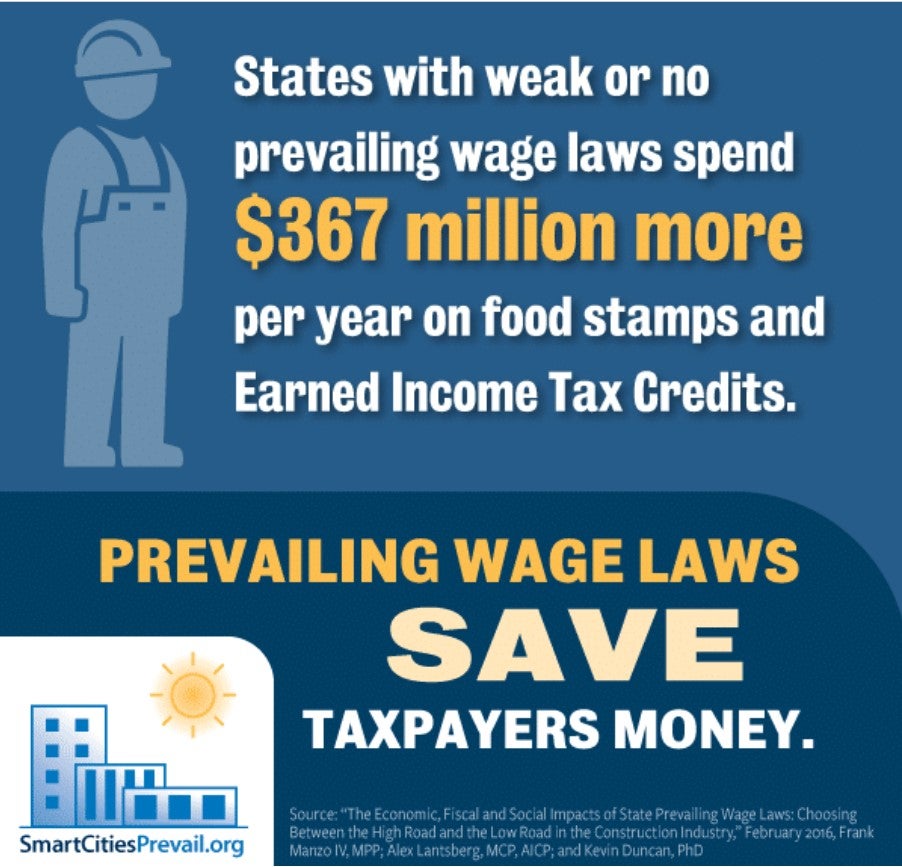Prevailing Wage: Get the Facts
Prevailing wage laws ensure that money spent by the government does not undercut established local wage and benefit standards, they also stop a race to the bottom for construction contracts, support good jobs, and provide strong value to taxpayers.
Enacted in 1931, the federal Davis Bacon Act sets prevailing wage rules for federal construction projects, such as federal courthouses, office buildings, and airports. Twenty-seven states have state prevailing wage laws (also known as “little Davis Bacon Acts”), which set a prevailing wage rate for most state-funded construction projects, such as schools, state police stations, and state office buildings. Both Members at Work stories in this Issue (pages 3–9) were public projects with prevailing wages paid to BAC members, supporting local contractors, workers, and the community.
Since prevailing wage sets the labor cost for public projects, contractors are able compete on a level playing field and bid based on skill, experience, and reputation. These laws are critical to maintaining a middle-class life for construction workers, both union and non-union. Because of this, unscrupulous organizations, like Associated Builders and Contractors (ABC), want to eliminate these protections by spreading lies about the effects.

FACTS:
+ Prevailing wage produces up to a 10% increase in hiring of local contractors and workers.
+ On-the-job fatalities are 14% lower in states with prevailing wage.
+ Prevailing wage reduces construction worker poverty.
+ Workers earning prevailing wage have more disposable income to put back into the community on local businesses and services, which stimulates job creation across the entire local economy.
+ 83% of peer-reviewed studies conducted since 2000 find that prevailing wage has no effect on total construction costs — the money goes to the workers and local employers instead of big business profit.
+ States with prevailing wage laws have up to 15% higher productivity on construction sites and spend less on fuels and materials as contractors utilize higher skilled local workers.
+ Prevailing wage boosts the economy by over $1 billion annually.
+ Prevailing wage reduces racial income inequality in construction by 7%-53% (depending on state).
Find out more at bacweb.org/issue/prevailing-wage
Editor’s Note: Bulleted facts are resourced, and some reprinted, from materials published by Illinois Economic Policy Institute and smartcitiesprevail.org.
